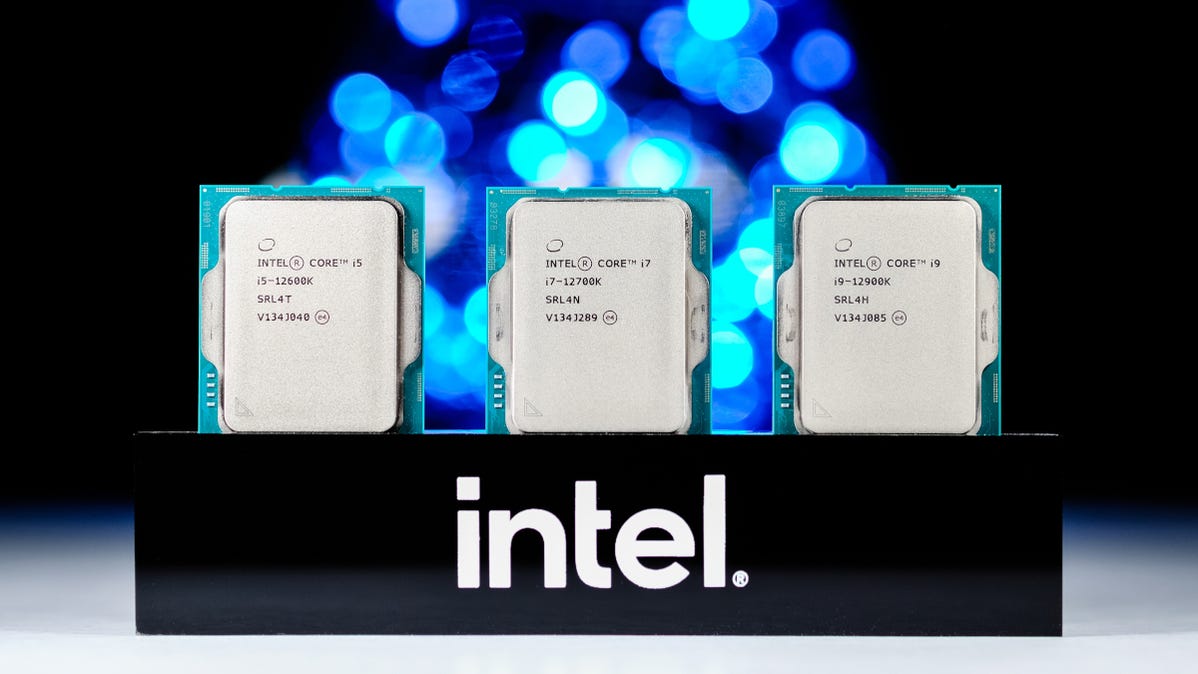
After a two-year break, AMD finally has new Ryzen chips on store shelves, and now it’s up to Intel to step up its game. Intel now says it is breaking the 6 GHz barrier for the first time on its 13th gen CPUs.
Intel has yet to introduce its full 13th gen CPU lineup, codenamed Raptor Lake. But ahead of its announcement, the company shared some key details of its upcoming CPU range at the Intel Tech Tour in Israel. Raptor Lake CPUs will be 15% faster than Alder Lake (12th gen) chips in single-threaded tasks, and up to 41% faster in multi-threaded workloads. Of course, this is according to Intel’s own metrics, so we should take the data with a grain of salt until the chips are out and real-life testing can be performed.

Not only that, but Intel’s new CPUs will break the 6 GHz barrier for the first time ever. Currently, Intel’s most capable chip, the Core i9-12900KS, goes up to 5.5 GHz, while AMD’s recently announced Ryzen 9 7950X will run at speeds up to 5.7 GHz. Still, we have yet to see a CPU go over 6 GHz without overclocking.
If we take overclocking into the equation, and liquid nitrogen for extreme cooling, Intel says that Raptor Lake should be able to reach, and break, the current 8 GHz overclocking world record. Right now, the world record is 8.72 GHz with an AMD FX-8370, so the new Intel silicon will need to go over that to claim that record.
We should mention that these chips will still run on Intel’s current socket, LGA 1700, so you should be able to upgrade from current Intel CPUs. They’ll also still be on Intel 7, which is a 10nm process, so if these chips really go up to 6 GHz, you should probably over-spec your cooling solution and power supply a lot. Intel’s recent CPUs are known to run toasty, and it looks like these will be no different.
Intel has also detailed the specs of the upcoming chips. The mid-range Intel Core i5-13600K will come with 14 cores and 20 threads, and the Core i7-13700K will have 16 cores and 24 threads. The former will run at a max P-core frequency of 5.1 GHz, while the latter will run at 5.3 GHz. The flagship Core i9-13900K will come with 24 cores (eight P-cores and 16 E-cores) and 32 threads. It will reach up to 5.4 GHz, but it can boost up to 5.8 GHz with Thermal Velocity Boost.
If the Core i9-13900K isn’t the 6 GHz chip, it will likely be a special edition KS variant, which is normally just cherry-picked silicon running at higher clock speeds. The Core i9-12900K runs up to 5.2 GHz, while the KS variant of that chip runs at 5.5 GHz. We could be in for a similar thing here.
